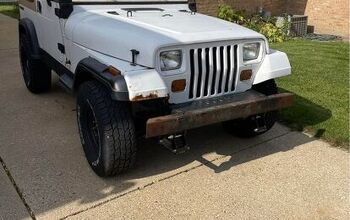Editorial: Why the So-Called "Right to Repair" Legislation is Unnecessary
[This editorial was sent to us by Charley Territo from the Alliance of Automobile Manufacturers.] For the past eight years, a group that represents aftermarket parts suppliers has lobbied in Congress and state houses across the country for legislation that would give them free access to the intellectual property of automakers. Automakers spend more on research and development than any other industry. The proponents of this legislation can’t keep up. Their hope is that passage of Right to Repair would cut down on the costs and time needed to develop aftermarket parts to compete with OEMs. In practice, this legislation would do nothing to address the problems the CARE coalition says exist. It is a solution in search of a problem.
Ironically, ALLDATA, one of the largest of these third party providers of service and repair information, is a wholly-owned subsidiary of AutoZone, which is a major funder of the coalition in support of so-called Right to Repair legislation. Either the Automotive Aftermarket Industry Association is misstating a public policy position or ALLDATA is misrepresenting the nature of its product.
The information necessary to service and repair motor vehicles is widely available to all segments of the nation’s service and repair industry. In 2002, automobile manufacturers and the Automotive Service Association signed a broad industry agreement to ensure the general availability of service information, tools, and training. This industry agreement utilizes the National Automotive Service Task Force (NASTF), a broadly representative voluntary organization designed to resolve any availability concerns that may arise.
In 2007, NASTF reviewed a mere 48 service information requests out of more than 500 million automotive service and repair events. Of those 48 requests—some of which were duplicates—all but one was resolved readily by the vehicle manufacturers involved. We believe NASTF has and will continue to serve as an important organization for the service and repair industry.
Congressional support for the so-called “Right to Repair Act” has diminished as this voluntary agreement has been implemented. A few weeks ago, the legislation was re-introduced with just two cosponsors, down from 177 just a few years ago. Furthermore, in 2007 the Federal Trade Commission reported to Congress that it had received no complaints from independent repairers or anyone else about this issue. Unfortunately that hasn’t stopped the CARE coalition from continuing to scour the country looking for a sympathetic legislature to intervene on their behalf.
Today’s automotive engineers are using computers in innovative ways to produce even safer and cleaner vehicles. And while automotive computers monitor and control everything from airbag safety systems and anti-lock brakes to GPS systems, fuel economy and emissions controls, they also require independent repairers to invest in the tools, training and equipment necessary to properly service theses automobiles.
For many independent repairers, the current economic crisis has been a boon to their businesses. Consumers are holding on to the vehicles longer and choosing to make repairs rather than purchase new autos. Manufacturers are committed to providing independent repairers with the information they need to repair automobiles. In fact, more than 75 percent of post-warranty repairs are performed by non-dealer shops.
Right to repair is a parts bill masquerading as a repair bill. Let’s hope legislators around the country continue to see through the disguise.
More by Admin
Latest Car Reviews
Read moreLatest Product Reviews
Read moreRecent Comments
- David Murilee Martin, These Toyota Vans were absolute garbage. As the labor even basic service cost 400% as much as servicing a VW Vanagon or American minivan. A skilled Toyota tech would take about 2.5 hours just to change the air cleaner. Also they also broke often, as they overheated and warped the engine and boiled the automatic transmission...
- Marcr My wife and I mostly work from home (or use public transit), the kid is grown, and we no longer do road trips of more than 150 miles or so. Our one car mostly gets used for local errands and the occasional airport pickup. The first non-Tesla, non-Mini, non-Fiat, non-Kia/Hyundai, non-GM (I do have my biases) small fun-to-drive hatchback EV with 200+ mile range, instrument display behind the wheel where it belongs and actual knobs for oft-used functions for under $35K will get our money. What we really want is a proper 21st century equivalent of the original Honda Civic. The Volvo EX30 is close and may end up being the compromise choice.
- Mebgardner I test drove a 2023 2.5 Rav4 last year. I passed on it because it was a very noisy interior, and handled poorly on uneven pavement (filled potholes), which Tucson has many. Very little acoustic padding mean you talk loudly above 55 mph. The forums were also talking about how the roof leaks from not properly sealed roof rack holes, and door windows leaking into the lower door interior. I did not stick around to find out if all that was true. No talk about engine troubles though, this is new info to me.
- Dave Holzman '08 Civic (stick) that I bought used 1/31/12 with 35k on the clock. Now at 159k.It runs as nicely as it did when I bought it. I love the feel of the car. The most expensive replacement was the AC compressor, I think, but something to do with the AC that went at 80k and cost $1300 to replace. It's had more stuff replaced than I expected, but not enough to make me want to ditch a car that I truly enjoy driving.
- ToolGuy Let's review: I am a poor unsuccessful loser. Any car company which introduced an EV which I could afford would earn my contempt. Of course I would buy it, but I wouldn't respect them. 😉


































Comments
Join the conversation
I work for an auto parts retailer. (No, not Autozone.) 90% of auto parts are not affected by this bill, or its Canadian equivalent (which by the way, is currently being touted all over our country much the same way)... The 10% comes from the complex diagnostic equipment now required for "the little guy" to stay in business. People keep blaming this on our parts companies, claiming we're being greedy and wanting a piece of the OE's "diagnostic pie", as it were. But the fact is, we sell quite a bit of diagnostic equipment for older cars already, and even then it doesn't make up but a small, small percentage of our sales to local garages. I personally might only sell one or two of the premium $800-2000 scantools (Bosch, OTC, etc) a year. The problem comes purely on the shop's side--And it will severely hurt the industry. No, not changing pads and rotors--that has evolved too, in that the aftermarket has scrambled to support ABS sensors and pad wear sensors. No, not changing wheels and tires--that has evolve too, in that the aftermarket has scrambled to support Tire Pressure Monitoring Systems. It comes with, in most cases, are the most elaborate and expensive repairs to begin with: drivetrain diagnostics. In the old days it was reading spark plugs and looking at exhaust smoke to tune the carb... Then it moved onto simple OBD-I code readers for a hundred bucks or so... Then it moved onto complicated OBD-II scan tools that cost over $1000, to today's overly-complicated, obscenely priced diagnostic tools for late OBD-II, that work with the ABS computer, the climate computer, and god knows what else. And that's only with the current generation of cars--as they get even more complicated with even more computer systems controlling things (hybrid systems, stability control, external sensors), even more and more complicated diagnostics will be required. Who knows, 10 years from now we might need some sort of crazy diagnostic tool to change tie rod ends! As obscenely expensive as they are, they're available and any garage, big or small, and repair a car. This bill threatens their ability to do that, as the OEs will go completely proprietary. That means if you're stranded in the middle of nowhere with the engine not running properly, Joe Busted-Knuckle can't fix it for you, regardless of how much it costs. But the dealership two cities over? They'd be happy to charge you three times as much to diagnose it, sometimes only taking 15 minutes to do so. Working in this industry has taught me one thing--dealers charge way more money than they should for absolutely everything they do. Which of course brings us to the second reason this is selfish, Capitalist gouging--The freedom of the customer to go to the average Joe's garage and pay a reasonable amount of money for repairs, instead of being raped by the dealer.
And as pointed out by nonce, providing diagnostic equipment to jobbers does not require you to reveal your source code. Keeping it secret is for one reason only--so that only the dealer can repair the car. Period.